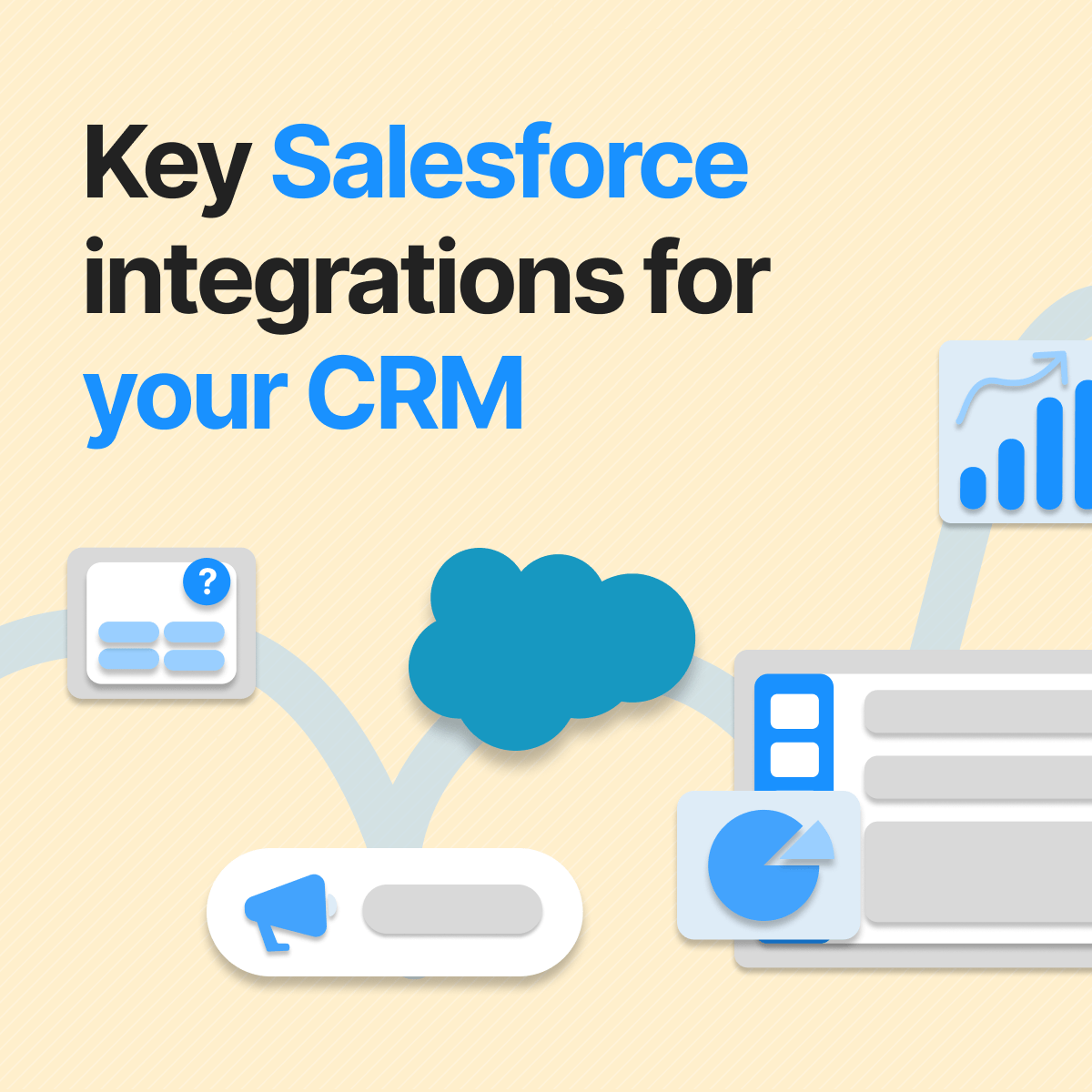Salesforce is the biggest and most important platform out there for collecting, managing, and reporting on sales. It is helpful for managing customer databases for businesses, making it the number one CRM software chosen by users since 2017. To this day, it concentrates more than 20% of users on its niche.
But despite its undisputed popularity, not everyone with access to this software has enough knowledge, training, or information to make the most of one of the most powerful sales SaaS today. Because it happens that, although Salesforce is a powerful platform for data management, it is not necessarily what companies need to actually sell.
Why add integrations to Salesforce?
Salesforce stands out from its competitor’s thanks to its enormous flexibility. This means that its main feature is that it allows companies to customize processes in different areas. How? Using integrations.
Benefits of Salesforce integrations
The advantages of adding Salesforce integrations to your CRM are numerous. But most importantly, it avoids manual data entry and unwanted errors. Independently of your type of business, you must have accurate data about customers, staff, and activities to work efficiently and achieve greater productivity. When you have accurate data, making more and better decisions becomes easier.
When we add integrations to Salesforce, we can also automate workflows. Repetitive tasks disappear completely or, if anything, can be performed faster and more efficiently, saving SDR agents time to focus on quality prospecting. The tools you can integrate with Salesforce help information flow smoothly between various departments, your agents, your potential and current customers, and your company.
Types of CRM integrations
All external solutions, or integrations, are non-code software that overlays on top of your CRM and is added in a matter of minutes as if they were plug-and-play. These tools can be divided into five broad categories:
- Sales tools.
Sales tools automate the way your team engages with prospects and current customers, throughout the entire sales cycle. The main advantage is that all sales activity is recorded automatically, in an integrated way, and without leaving the CRM. This increases the productivity of users, who finally have a system that allows them to manage large volumes of tasks.
- Connectivity tools
These types of integrations enable businesses to streamline their workflow, improve data accuracy, and enhance customer experiences. For example, Aircall is a connectivity tool that integrates Salesforce with a cloud-based phone system, allowing sales and support teams to make and receive calls directly from Salesforce.
- Digital adoption platforms
Digital Adoption Platforms (DAPs) are a type of software that helps users learn how to use an application through guides integrated into the application. DAPs are crucial to ensure that companies get the most out of applications.
- Marketing automation
Marketing automation solutions help manage processes and campaigns across multiple channels.
Saving time and money by automating repetitive tasks, such as email marketing and nurturing and network campaign management, is undoubtedly the main benefit of such Salesforce tools.
- Business Intelligence
Business Intelligence tools can be understood as a set of strategies and technologies for analyzing business information and transforming it into actionable insights. Salesforce BI-type tools, in the long run, improve decision-making processes and internal productivity, leading to better growth patterns.
- Finance Management
Finance management tools for CRM are specifically built to automate accounting operations in businesses. Financial integrations for your Salesforce CRM allow you to unify sales reps, professional services teams, back-office professionals, and accountants.
Increased productivity, increased interactions, and adoption of your CRM. These are just some of the benefits of the Salesforce integrations you can start using today. All of them, or just one, can turn your database into a genuine sales machine.
Are you tired of “chasing” your agents to use Salesforce and not having reliable data? Integrate Bloobirds into your CRM and end your frustrations, automate daily tasks, centralize your communications, and improve the productivity of your sales teams.

